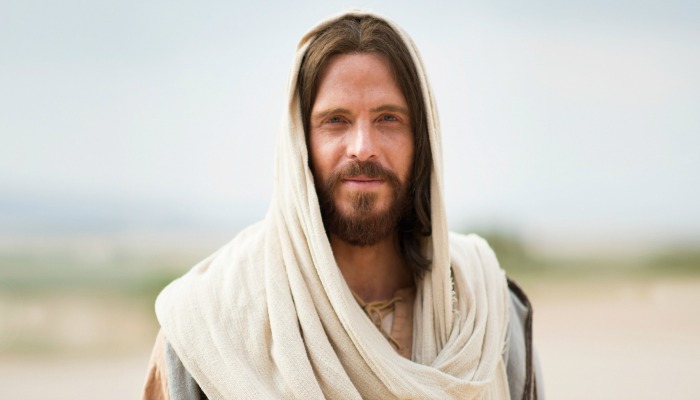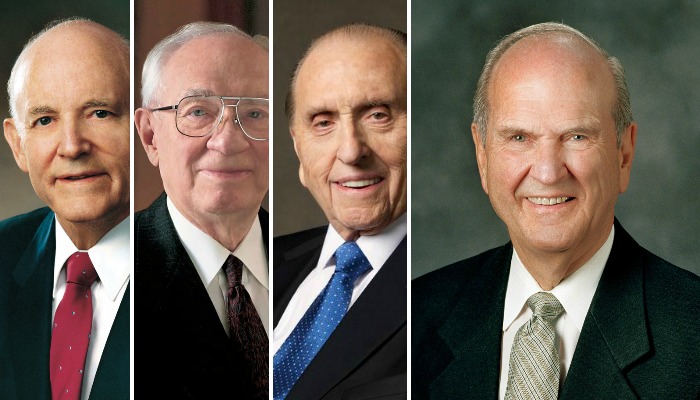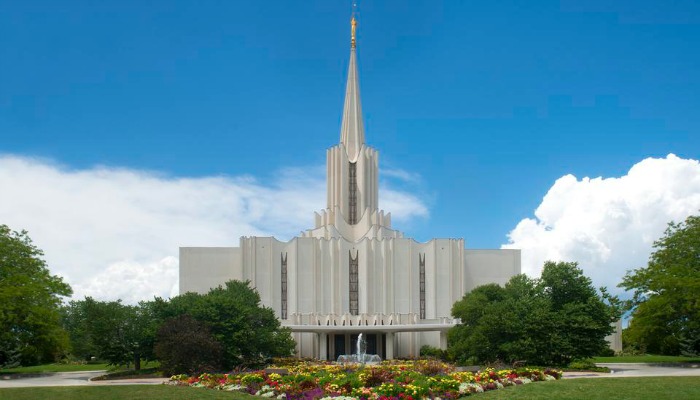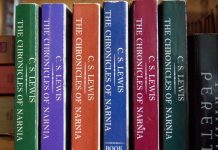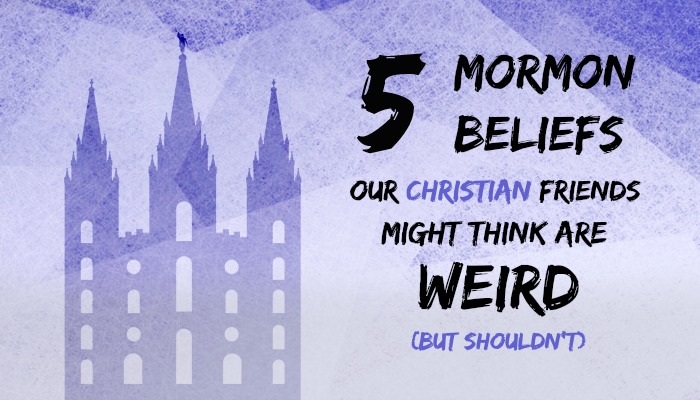
First of all, major respect for Christians worldwide. Though some Mormon beliefs may contradict yours, we still proudly call ourselves Christians and ecstatically rejoice with you over the atoning power of our Lord and Savior, Jesus Christ. If there’s one thing we can all agree on, it’s that Jesus is the man. Amen to that.
Now, if you’re a non-Mormon reading this, chances are you’re at least familiar with some of our beliefs (though hopefully, it comes from more than a hit musical and questionable Reddit threads). But no matter where you’ve heard about us, some Mormon beliefs probably seem pretty weird. Heck, I still think some Mormon beliefs are pretty weird. That said, here are a few beliefs that I think some Christians needlessly stumble over, because to be honest you probably believe in something similar.
1. More scripture than the Bible
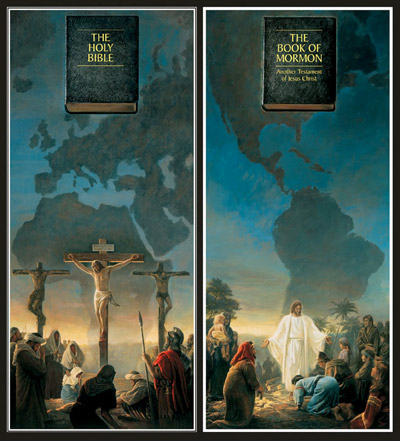 If the existence of scripture outside of the Holy Bible raises some red flags in your mind, that’s totally fine. If someone came to me claiming to have holy scripture other than what I already believe in, I’d have questions. But the Bible never claims to be God’s only word (and if Revelation 22:18-19 comes to mind, read this). In fact, the Bible’s very existence is evidence of thousands of years of God’s continuing word. The possibility of more scripture than the Bible should be totally feasible, just as it was to Adam, Moses, Paul, etc.
If the existence of scripture outside of the Holy Bible raises some red flags in your mind, that’s totally fine. If someone came to me claiming to have holy scripture other than what I already believe in, I’d have questions. But the Bible never claims to be God’s only word (and if Revelation 22:18-19 comes to mind, read this). In fact, the Bible’s very existence is evidence of thousands of years of God’s continuing word. The possibility of more scripture than the Bible should be totally feasible, just as it was to Adam, Moses, Paul, etc.
In fact, there are more than a dozen references in the Holy Bible to scripture that never made it into the Bible text (we Mormons don’t claim to have them either—who knows what happened to them). For example, 1 Chronicles 29:29 mentions THREE books in one verse that we don’t have: “The book of Samuel the seer,” “the book of Nathan the prophet,” and “the book of Gad the seer.”
Just because God spoke to one group of people (ancient Israel) through prophets and in person doesn’t mean He hung the rest of the world out to dry. The Book of Mormon is evidence that God cares about all of His children, no matter their location. Of course, I wouldn’t expect you to take our word for it. Read it and decide for yourself!
2. Modern prophets
Consistent with Mormon beliefs about scripture, we also believe God has not stopped calling prophets to teach the gospel and head up the Church. As difficult as it is to believe in prophets living in our day and age (as it always has been throughout history), this has been God’s pattern since the beginning, starting with Adam. We believe in the admonition of Amos that, “Surely the Lord God will do nothing but he revealeth his secret to his servants the prophets” (Amos 3:7).
Many well-intentioned faiths assert that Jesus Christ was the last living prophet on the earth, though scriptures such as the following seem to complicate that idea: Acts 13:1, 15:32, 21:10, 1 Corinthians 12:28, and Ephesians 3:5, to name a few.
Our belief in prophets today might seem pretty weird to those outside our faith, but within the context of Christianity, this doctrine really should be very familiar. We believe the prophet today is Russell M. Nelson, but, again, don’t take our word for it. Here’s how you can know for yourself.
3. God’s use of inanimate objects

Joseph Smith (who we esteem as a prophet just like Moses, Abraham, Isaiah, Peter, etc.) used what we call a “seer stone” to translate The Book of Mormon from an ancient language into our own. Joseph had a few different seer stones, one or two of which still exist today (pictured right). I’ll be the first to admit it, it sounds weird. Looks like an average rock to me. But we see a pattern of God using inanimate objects to bring about his purposes throughout the history of the world.
Moses used a stick to do some pretty crazy things. He also saved the Israelites from “fiery serpents” by having them look at a brass snake on a pole. Paul used “handkerchiefs or aprons” to heal people and cast out devils. Heck, Christ wiped mud on a man’s eyes and healed his blindness. If we believe these things, it shouldn’t be too far-fetched to believe Joseph Smith translated an ancient book through a seer stone.
In fact, the ancient Israelites regularly used two seer stones called the Urim and Thummim. According to Bible.org (a non-Mormon website), “most scholars believe [the Urim and Thummim] to be two sticks or stones, perhaps precious stones, that God used in a miraculous way to reveal His will.”
And of course, it’s wasn’t Moses’ rod that was powerful in and of itself, just as there was nothing inherently powerful about the mud Christ used or the stones the Israelites and Joseph Smith used. These objects only became relevant as God’s power worked through them.
4. Confusing commandments
 You probably already know that Mormons abstain from drinking such seemingly inconsequential beverages as coffee and tea. If you ask one of us what exactly renders coffee and tea as “undrinkable” in God’s eyes, we’re probably not going to be able to give you a great answer.
You probably already know that Mormons abstain from drinking such seemingly inconsequential beverages as coffee and tea. If you ask one of us what exactly renders coffee and tea as “undrinkable” in God’s eyes, we’re probably not going to be able to give you a great answer.
At the end of the day, it goes back to point number two, about modern prophets. We don’t drink it because we believe it was part of a commandment we call The Word of Wisdom which was revealed to a modern prophet. Some people call that blind obedience. We call it faith obedience.
And this concept should be familiar to Christians worldwide. For example, when a man called Naaman came to the prophet Elisha hoping to be healed of his leprosy in the Old Testament, Elisha told him to bathe in the Jordan River seven times. Naaman was confused. Jordan was far from the cleanest river in the region, and he couldn’t understand why the prophet was asking him to bathe in it seven times. He was angry but eventually humbled himself, acquiesced, and was healed. Why did the Israelites have to march around Jericho a specific number of times before the walls would fall? Why would God command Abraham to sacrifice Isaac (that was a close call)?
The point is, if we discount Mormon beliefs (or any religion’s beliefs) because some of them don’t seem to make a lot of sense, we may be making a mistake. Sometimes we don’t fully understand commandments at the time we’re asked to obey them, and that’s OK.
5. Temple worship
To non-Mormons, there may seem to be a lot of mystery surrounding Mormon temples. We consider them the most sacred places on earth and therefore try not to talk publicly about some of what goes on inside. That might raise some eyebrows, but rest assured, we’re not in there doing the conga and sacrificing goats or anything like that.
Our temple worship shouldn’t come as a surprise, though. Temple worship in one form or another has been an element of the believers since the beginning. The Israelites built a portable temple to worship in. Solomon built a more permanent temple … until it was destroyed by the Babylonians. King Herod built another one in its place, though by the time Christ came onto the scene its sacredness had been significantly diminished (hence the story of Christ causing a ruckus amongst the moneychangers there).
Similarly, LDS temples are places of spiritual refuge, meditation, and sacred practices with roots in the old world (such as baptism). While the Bible does not mention what happened in ancient temples with much detail (again, it’s sacred stuff), the idea of temple worship shouldn’t seem too weird to our Christian friends.
Our eleventh article of faith
We members of The Church of Jesus Christ of Latter-day Saints have 13 Articles of Faith. They’re just basic descriptions of some fundamental Mormon beliefs. Number eleven says this:
We claim the privilege of worshiping Almighty God according to the dictates of our own conscience, and allow all men the same privilege, let them worship how, where, or what they may.
In the last few minutes you’ve become a little more familiar with Mormon beliefs, but if you don’t totally agree with our doctrine, no worries! It doesn’t make you a bad person, and hopefully in your eyes it doesn’t make us bad people either. It’s entirely possible to disagree without being disagreeable, but I’m sure there are plenty of things we do agree on. Again, as Christians, we’re all trying to emulate Jesus Christ. We’re all trying to love our neighbors, to forgive others, and to do unto others as we’d have them do unto us. And if that’s all we have in common, I’d say we can get along just fine.


